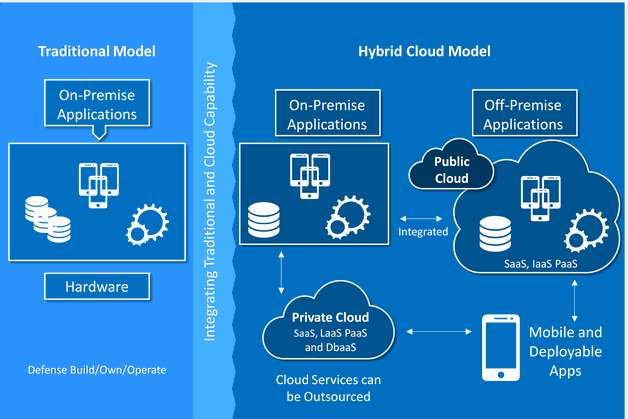



Hybrid Cloud is a computing environment that combines the use of both on-premises infrastructure and cloud-based resources. Integrate the agility and scalability of public cloud with the security and control of private cloud to create a versatile, flexible and cost-effective IT environment. Don't let infrastructure limitations hold you back - embrace the power of hybrid cloud today!


• Flexibility and Scalability: Hybrid Cloud allows organizations to scale their IT resources up or down based on their needs, leveraging the elasticity of public cloud for peak workloads, while retaining control over critical data and applications on-premises or in private cloud.
• Cost Efficiency: Organizations can optimize their IT costs by leveraging the cost-effective resources of public cloud for non-sensitive workloads, while keeping critical data and applications on-premises or in private cloud to avoid costly data transfer and storage charges
• Data Privacy and Security: Hybrid Cloud provides organizations with the flexibility to choose where to store and process their data, enabling compliance with data privacy regulations and ensuring sensitive data is protected in on-premises or private cloud environments.
• Agility and Innovation: Hybrid Cloud allows organizations to rapidly deploy new applications, services, and solutions in the public cloud, while retaining the ability to integrate and extend existing on-premises applications and systems, fostering innovation and agility.
• Disaster Recovery and Business Continuity: Hybrid Cloud enables organizations to implement robust disaster recovery and business continuity strategies by replicating critical data and applications across on-premises and private cloud environments, providing resiliency and redundancy.